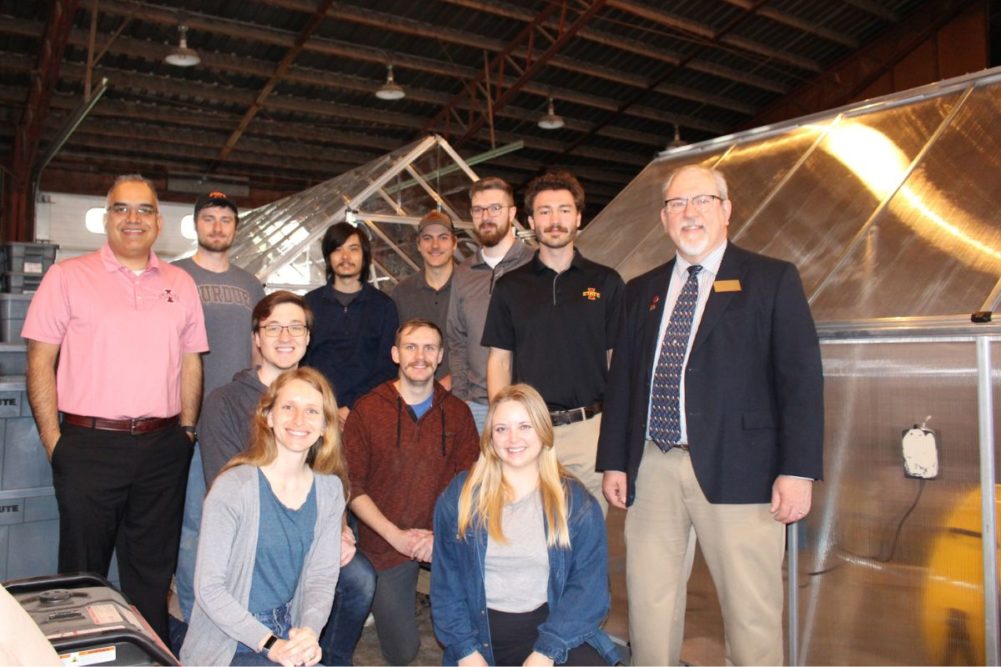AMES, IOWA, US — Agronomists are working with engineering students at Iowa State University to create a research chamber to study soybeans’ responses in the field to current and future climate conditions.
The students created a portable field deployable research chamber that is essentially a mini greenhouse. It can be used to control conditions for plant testing in the field. Asheesh “Danny” Singh, professor of agronomy at Iowa State, worked with seniors in Mechanical Engineering 415 Capstone Design classes.
“Field testing of plants under future climate scenarios outside of the lab are vital but really difficult to conduct,” Singh said. “We need more capacity to test in-field interactions of soil health, moisture and temperature with plant vigor and health to better examine plant responses to the environmental stresses happening now and expected to escalate.”
Liza Van der Laan, an agronomy PhD student in Singh’s lab whose area of research is heat stress in soybeans, helped devise a general idea for the portable, mini-greenhouse project. Then, she worked with ME 415 teams in fall 2021 and spring 2022 to create a prototype. Their engineering challenges included creating something that would be low-cost, easy to move, durable and ideally solar-powered. The greenhouse also needed to be able to provide proper air flow and to maintain steady temperatures, especially at night.
The students developed a working model, which was displayed during the 2022 National Association of Plant Breeders annual meeting in early August.
Van der Laan expects at least one more semester of work will be needed with another ME 415 team to refine the model for use in research experiments.
Support has come from the USDA National Institute of Agriculture through the AI Institute for Resilient Agriculture grant and the National Science Foundation, with initial funding from Iowa State, including through the R.F. Baker Center for Plant Breeding and the Plant Sciences Institute. The partnership with the capstone students started in 2014-15 school year through the ISU’s Presidential Interdisciplinary Research Initiative support to develop mobile phenotyping units. Over the years, this association of Singh’s Soynomics team with ME 415 students has contributed to several successful grants from federal agencies.
“Opportunities to work with Dr. Singh and his Soynomics lab have been perfect for our final projects, where students work in small teams on real-world problems to develop and demonstrate their problem-solving skills as engineers about to enter professional careers,” said Jim Heise, professor of practice in mechanical engineering. “Many do not have any experience with agriculture, so this gives them exposure to new fields.”



